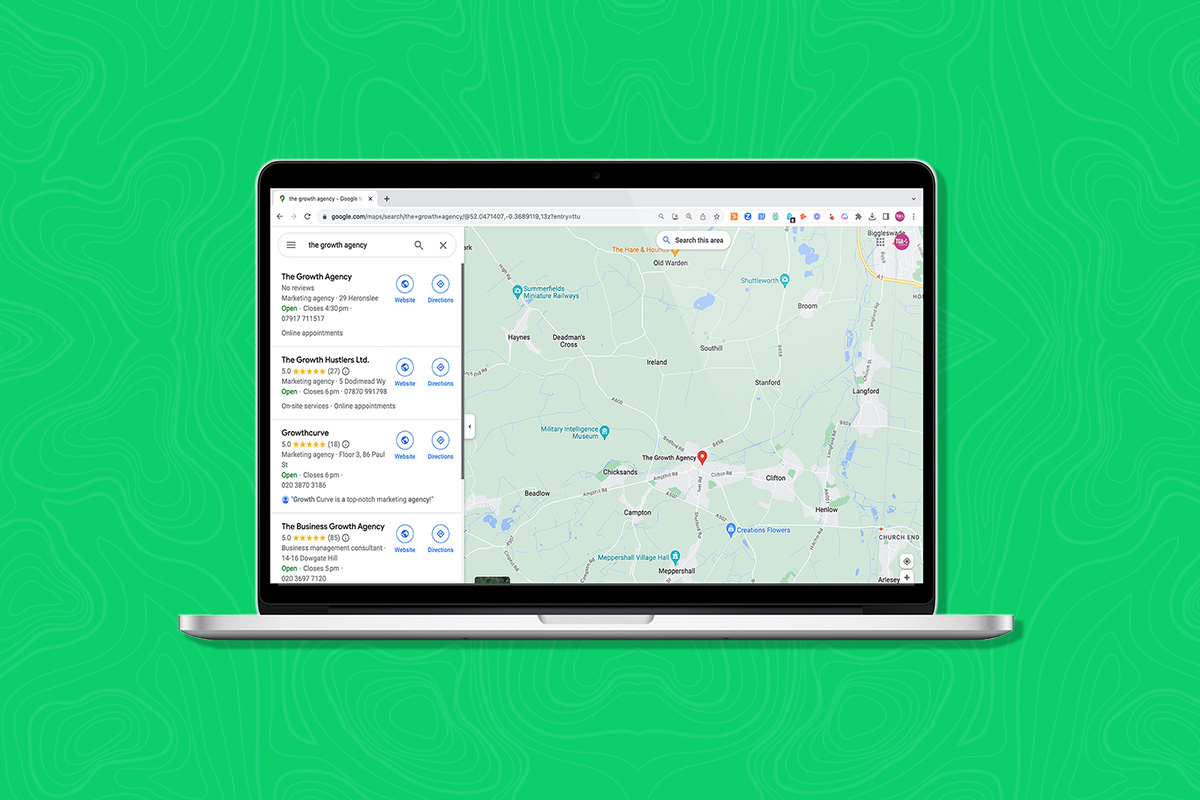How to Rank Higher on Google Maps in 10 Steps

Google Maps is a crucial tool for boosting your website's visibility in local SEO search. In order to help you achieve a higher ranking on Google Maps, let's first delve into the fundamentals of local SEO and understand its significance. Customers often ask us how to rank higher on Google Maps, or can you use Google Maps to boost local SEO? Well here's our Local SEO 101 guide to ranking higher on Google Maps.
Local SEO is the process of optimising a website for local search engine results. By using specific keywords and location-specific targeting, your website can achieve higher visibility in the SERPs (search engine result pages). This increased visibility will help you rank better and draw more customers to your business. To ensure you are properly leveraging local SEO and Google Maps, here are some key steps:
1. Identify and target local keywords
Before you can start your SEO campaign, it is important to identify local keywords that are related to your business. These should be tailored specifically to the geographic area you are targeting.
2. Optimise website content
Once you have identified the right set of keywords, make sure that they are included in all of your website’s content. This includes titles, headings, meta descriptions, body text and URLs. As an example, if you are a plumber based in London, make sure to use phrases like ‘plumbers in London’ throughout your site.
3. Create local business listings
You should create local business listings on Google My Business and other industry-specific websites like Yelp or Angi. These referral sites are important because they provide more visibility for your business and establish trust with potential customers.
We list our own website on more than 50+ websites to improve our backlinks and rank authority. These are updated on a monthly basis to keep the listings fresh and up to date.
4. Monitor keyword rankings
Monitoring your website’s keyword rankings is one of the best ways to track your SEO progress. This will help you determine which keywords are working for you and which ones need more optimisation. You can also adjust your content strategy accordingly based on the data you collect from monitoring your keyword performance. This will let you know what is and isn't working.
5. Stay active on Social Media
Social Media is an important part of SEO as it gives your website more visibility and helps to build relationships with potential customers. It’s important to stay active on social media platforms, post relevant content that your audience will engage with, and use appropriate hashtags to increase visibility.
There may be some uncertainty regarding the impact of social media on SEO, but we can assure you that it does have an indirect effect. The talented team at SemRush has written an informative article here, outlining 7 Ways Social Media Can Improve your SEO Results.
6. Check your Google Map Marker is correct
Having an up to date map marker on Google Maps can help with local SEO, especially if customers are looking for your business in a particular area. Make sure that the address it’s pointing too is correct and that it contains relevant information such as opening hours and contact details. You can also add payment options, holiday hours and more.
7. Re-evaluate content regularly
Content remains king when it comes to SEO , but it’s important to take a step back and evaluate the content you have on your website regularly. Are there any gaps in the topics you are covering? Does your content provide value for customers? Is it comprehensive and easy to understand? If not, it could be time to update or re-write some of your content.
8. Optimize page titles and meta descriptions
Page titles are one of the most important ranking factors in SEO. Make sure your web page titles are descriptive, include relevant keywords, and read naturally. Meta descriptions provide a brief summary about what’s on that page – it should be engaging, persuade potential customers to click through to the website, and contain key phrases you want to rank for.
9. Create a content strategy
Creating a content strategy is an important part of ensuring your website is successful in SEO. Developing a plan for what type of content you will create, how often you update it, and who your target audience is will help you focus on creating quality content that drives traffic to your website. Additionally, it’s important to optimize each piece of content for search engine optimisation and link it to other relevant pages on your website. This will help boost the authority of your website in the eyes of Google.
10. Track your SEO changes
Finally, you should regularly monitor your SEO performance by using analytics software or tools like Google Search Console to track how different changes on your website impact your rankings. This will help you identify any issues and make informed decisions about where to focus your SEO efforts. Additionally, tracking the progress of your content strategy can help you measure its success in driving more organic traffic.
The bottom line is that by following all of these strategies, you can make sure your website ranks highly on Google Maps, organically in search results and local SERP’s. The more proactive you are in taking steps to improve your local SEO the better rewards you will reap in terms of increased organic search visibility and traffic.
Good luck and happy optimising!
If you'd like some help improving your local search listings, your organic SEO or your Google Maps listing, check out our SEO Search Engine Optimisation Web Page or get in touch here.
Tags:
SEO
27-Sep-2023 10:30:00

Comments